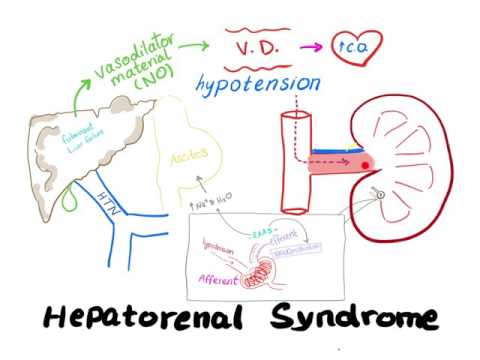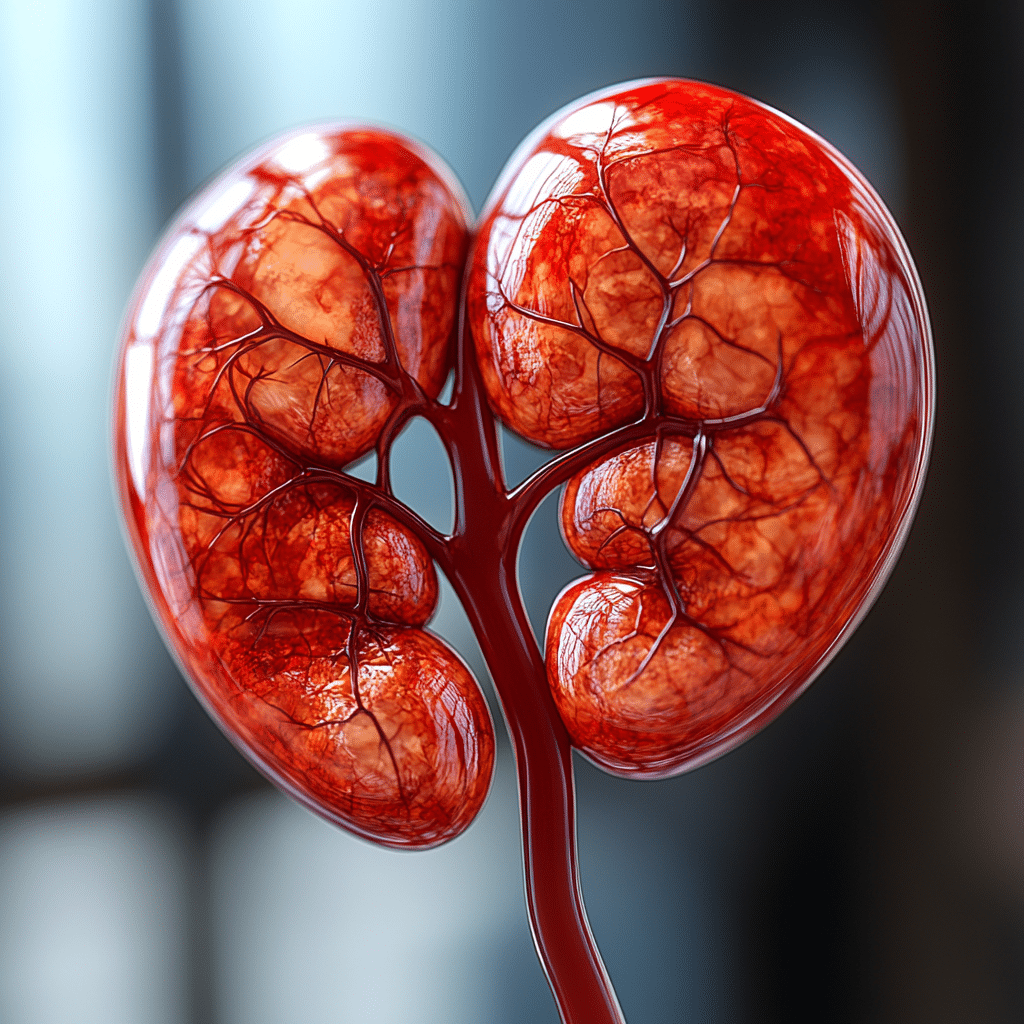When it comes to serious health conditions, few are as insidious as hepatorenal syndrome (HRS). This is not just another medical term; it’s a life-threatening condition that affects those battling advanced liver disease, particularly cirrhosis. HRS occurs when your liver fails to function properly, leading to a sharp decline in kidney function. Keep in mind that around 10-40% of people with decompensated liver disease may face this condition. So if you or someone you know fits this profile, understanding HRS could be the difference between life and death.

Understanding Hepatorenal Syndrome: A Critical Overview
At its core, hepatorenal syndrome is a real wake-up call. When the liver struggles, it sends ripples through the body—most notably impacting the kidneys. The primary issue lies in something called splanchnic vasodilation, where blood vessels in the abdomen widen, leading to decreased blood flow to the kidneys. This means your kidneys can’t maintain appropriate levels of function, which can spiral into serious health issues.
Let’s cut to the chase. If you’re a fitness enthusiast or someone focused on getting shredded, understanding how HRS disrupts your body’s balance is crucial. Imagine working hard to build muscle but realizing that your kidney functions are compromised. That’s a workout nightmare!
7 Critical Facts About Hepatorenal Syndrome You Need to Know

Diagnosis and Screening for Hepatorenal Syndrome
Diagnosing HRS isn’t as straightforward as you’d hope. It involves careful assessment using modified criteria, including serum creatinine levels and urine output. Plus, doctors must rule out secondary causes, like acute tubular necrosis, before confirming an HRS diagnosis.
Awareness is key. Keep your eyes peeled for classic symptoms like jaundice (yellowing skin), ascites (fluid build-up in the abdomen), and peripheral edema (swelling in the extremities). Recognizing these signs early can lead to quicker diagnoses, making all the difference!
Management Strategies for Hepatorenal Syndrome
When it comes to managing HRS, dealing with the underlying liver condition is essential. Here are some main strategies used in clinical settings:

The Role of Community Support and Resources
Don’t underestimate the power of community support. Organizations like the American Liver Foundation offer essential resources and information for patients and families grappling with these conditions. The journey through HRS can feel lonely, but you’re not alone.
Connecting with others can also provide much-needed emotional support. Peer-led support groups can introduce you to valuable insights and strategies based on personal experiences. Find your tribe—it’s a game changer!
Innovative Perspectives on Research and Future Directions
Emerging research is shining a light on personalized treatments for HRS, potentially tailored to each patient’s genetic makeup. Studies are digging into the relationship between renal function and liver disease, offering hope for more effective early interventions.
Stay updated and informed in your journey. The science of medicine doesn’t stand still, and neither should you. Imagine having access to treatments that fit you just right; that’s the future we’re heading toward.

Emphasizing Awareness and Education
Raising awareness around hepatorenal syndrome is a must. Understanding the relationship between liver and kidney health can lead to better management outcomes and ultimately save lives. As a fitness enthusiast, knowing these symptoms—like dysautonomia, hypomagnesemia, and others—can empower you to advocate for yourself or your loved ones.
Healthcare providers need to take HRS seriously, as it impacts not only clinical effectiveness but also enhances patients’ well-being. Foster a comprehensive approach to care, integrating physical, mental, and emotional health. It’s all about wholeness, folks!
Keep striving for more than just peak physical condition—aim for total health! Use your strength and character to not only transform your body but also foster knowledge and understanding in the process. Life is meant to be lived at a high level, so let’s get out there, keep pushing, and maybe even educate those around us about conditions like hepatorenal syndrome. You’ve got this!
And remember, transformations extend far beyond the gym. They encapsulate our understanding of life’s complexities, making us not just stronger but smarter too. Stay informed, stay sharp, and never lose sight of what it means to be truly healthy. Together, we can wholeheartedly support ourselves and our communities in navigating these serious conditions without losing our drive to stay fit, healthy, and ready for anything life throws our way!

Hepatorenal Syndrome: Engaging Trivia and Interesting Facts
Understanding Hepatorenal Syndrome
Did you know that hepatorenal syndrome (HRS) affects around 10-20% of patients with severe liver disease? That’s a significant number when you consider the impact liver issues can have. This condition happens when the liver stops functioning well, causing the kidneys to struggle too. Interestingly, much like how the perfect chicken fillet can enhance a meal, treating HRS requires a careful blend of medical strategies. Meanwhile, the concept of balance is crucial; when the liver fails, the body’s hormonal systems go haywire—almost like trying to wear ski pants in summer!
The Science Behind It
Let’s dive into the nitty-gritty. In HRS, reduced blood flow to the kidneys leads to kidney failure, but what’s truly shocking is that this can occur without any noticeable issues at first. Much like losing track of time during a binge-watch session of a thought-provoking series, patients may not realize just how serious their underlying liver condition really is. Monitoring leukocyte counts can sometimes give clues about the body’s response, much like how one might follow the latest trends in fashion—whether that’s donning cozy ski pants or keeping up with viral sensations like teddy Perkins.
Prevention and Treatment Insights
Now, while there’s no sugar-coating it, hepatorenal syndrome is life-threatening, but awareness is half the battle. Patients who know the symptoms can act sooner, which can be life-saving. For instance, a sudden decrease in urine output is a big red flag. It’s almost like that moment when you realize you forgot to check your groceries—if something’s off, don’t ignore it! Furthermore, some studies have shown that interventions can dramatically improve survival rates, almost like how a good punchline can turn a mediocre comedy night at a helium comedy club into a memorable one.
Understanding hepatorenal syndrome is key to prevention, and ongoing research continues to offer hope. Finding ways to boost treatment efficacy is essential. In fact, this creates a path toward a more proactive approach to liver health, where managing conditions like these can help maintain quality of life unconditionally—much like how a well-researched recipe can transform any dinner into an unforgettable feast.



























